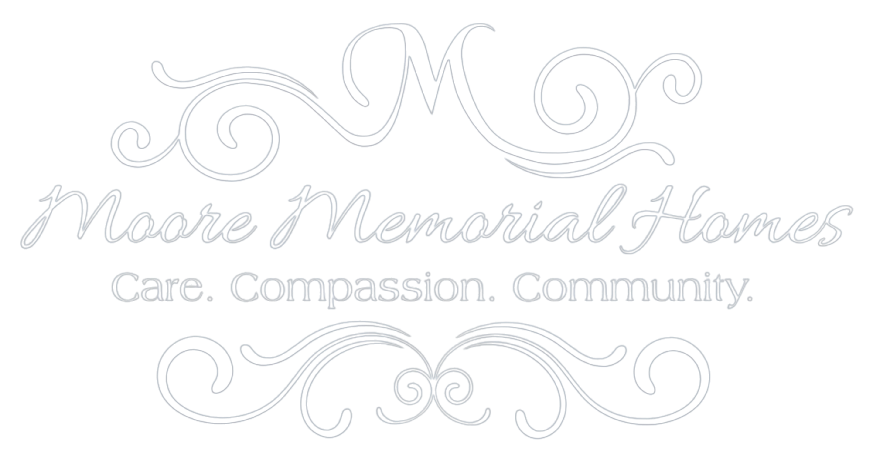Grieving Process
Every person is unique in the way he or she handles the loss of a loved one. While the grieving process is different for each of us, we all experience some common feelings as we work toward healing from our loss.
Our responses to the different feelings that occur during the grieving process are often described as “stages.” These stages are not tied down to “real time”, and people do not necessarily move in and out of the stages in an orderly, straightforward manner. Stages can last for minutes or hours. It is not unusual to move into and out of one stage and then to another, and cycle back again to the first one. You may find yourself repeating this process a number of times as you continue to work through your grief.
There are five commonly observed stages that people experience during the grieving process. These stages are denial, anger, bargaining, depression, and acceptance.
At the beginning, you may feel a sense of detachment, shock, or numbness. You may even wonder why you are not more upset over your loss. This feeling of disconnection is a survival response. It is simply nature's way of helping you to continue to function on a basic level while under extreme stress. Denial is a tool that unconsciously enables you to do the things that are necessary to carry on with your life in the days immediately following your loss.
Anger provides a bridge of connection from the initial numbness of grief. You may find yourself angry at the doctors, your family, the loved one who died, or at God. Anger is a necessary stage of the healing process. Your anger is connected to your pain. The more you truly allow yourself to feel your anger alongside the pain, the more it will diminish, and the more you will heal.
Before and after a loss, you may feel like you would have done anything if only your loved one would be spared. “If only” and “what if” becomes a recurrent thought. Guilt often accompanies bargaining. You may wonder if you could have done anything differently so that your loved one might still be alive. You may try to second-guess the doctors and yourself. You may revert to living in the past to avoid the pain of the present.
After bargaining, feelings of emptiness and grief present themselves on a deeper level. This depression is not a sign of mental illness. It is the appropriate response to a great loss. When a loss fully settles in your soul, and you realize that your loved one is not coming back, feelings of deep sadness (depression) are normal. To not experience depression after a loved one dies would be very unusual. Depression is a necessary step toward healing.
Eventually you come to terms with your bereavement as you move into the acceptance stage of grief. At this point, the loss has become part of your story and your history. It does not consume your life in the same way it did to begin with. With acceptance comes increased peace. As you move through this stage, you will find yourself once more interested in and able to enjoy some of the things that you formerly liked to do. You may develop new interests and relationships. You have learned to live with your loss in a way that is constructive and healing.
How long am I going to feel this way?
Every person is different, and so is their grief. Each person will follow a different path toward healing. Although there is no right or wrong amount of time to complete the grieving process, many experts agree that it is not unusual to take at least a year to move through the grieving process.
Complicated Grief
The duration of the mourning process can also be influenced by your relationship to the deceased, the amount of support you receive, and other factors.
Sometimes the healing process may become disrupted or delayed if other events or traumatic losses have previously occurred in a person’s life. This may be especially true if the other loss is relatively recent, or has never been fully processed in and of itself. This grief experience is known as “complicated grief.” People who are dealing with this type of grief may benefit by working with professionals who are trained in dealing with complex grief issues.
If, after some time has passed, you find your grief is still persistent and disruptive to the point where it impacts your daily functions, please seek professional counseling.

Sarah J. Moore
Owner/Funeral Director/Embalmer
Sarah is a native of the Abingdon and Avon/St. Augustine area. She graduated from Avon High School in 2006 and attended Carl Sandburg College. She received her degree in Mortuary Science in 2013 and began her apprenticeship and funeral directing career with Duker and Haugh Funeral Home in Quincy, IL. In 2015 she moved back to the Abingdon area and worked for Galesburg Cottage Hospital's Pathology Department. In 2019 she went back to the funeral industry with McGuire & Davies Funeral Home in Monmouth, IL. In 2022 the opportunity for ownership presented itself and she and her husband Michael became partners in this new venture. In November of 2022 they officially took over Wise Family Funeral Home in Roseville, Avon, and Alexis. Sarah resides in rural Monmouth with her husband; 3 children, Sawyer, Logan, and Lyla; 2 dogs, Lucy and Riley, and a flock of chickens. She is a member of Roseville Chapter N P.E.O, the First United Methodist Church of Monmouth and when time allows, she enjoys the outdoors; fishing, camping, swimming, etc, and attending various school and sporting events for her children.

Michael G. Moore
Co-Owner/Funeral Assistant
Michael is a native of Roseville, IL. He graduated from Monmouth/Roseville High School in 2007 and later received his Bachelors degree in Landscape Architecture from Illinois State University. He farms in rural Roseville with his parents. He is also a crop specialist with Country Companies and a proud co-owner of Moore Memorial Homes with his wife, Sarah.
